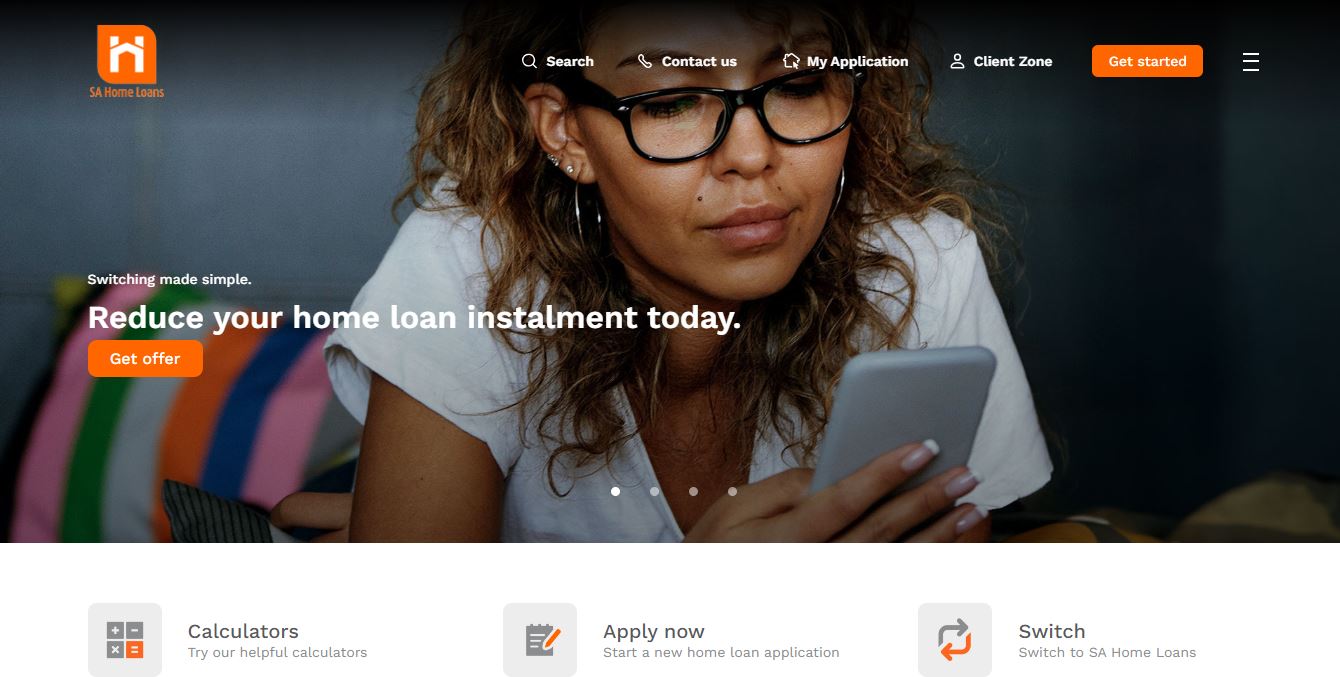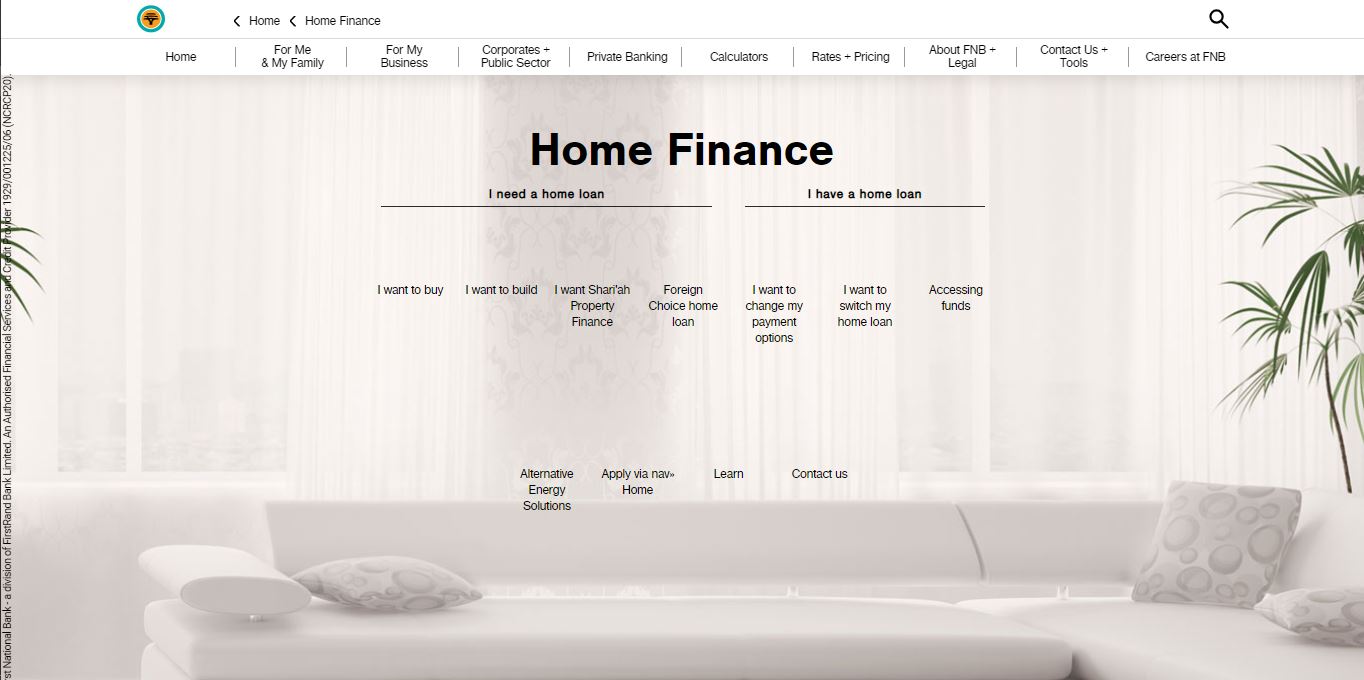
Home Loans
A home loan is a type of long-term loan that you pay back over more than 30 years. You can borrow up to R5M, and the interest rates can be either variable or fixed, starting as low as 10%. You can get pre-approved for a home loan online without having to make any upfront deposits.
Budget-friendly home loan, no deposit, suits your lifestyle.
Explore various home loan options by examining interest rates, loan repayment terms, associated charges, and other relevant factors. Uncover the most budget-friendly choice.
Count on our knowledgeable home loan providers, who are prepared to assist you in making the right decision for your needs and financial goals.
Explore Loan Options and Compare Rates
🧐 Overview of the Real Estate Market
📝 Imagine you’re in a big store, and instead of buying clothes or toys, you’re looking at houses. In South Africa, there are many houses and properties available for people to buy. Just like when you go to a store and want to choose the best toy or shirt, looking at houses is like checking out all the different options available for people who want to buy a home.
📝 So, it’s like going through a big catalog of houses, seeing what each one looks like, and figuring out which one you like the most. You might look at things like how big the house is, what it looks like inside, or where it’s located. It’s basically the first step in finding your dream home – exploring all the possibilities and deciding which one suits you best.
🧐 Importance of Home Loans
📝 Home loans are like special types of money that people can borrow to buy a house. They’re important because not everyone has enough money saved up to buy a house all at once. So, a home loan helps you get the money you need to buy your dream home.
🧐 Understanding Home Loan Basics
🧐 How Home Loans Work
📝 Imagine you want to buy a house, but you don’t have all the money right now. A home loan is like a friend giving you the money to buy the house, and then you pay them back over time.
🧐 Types of Home Loans
📝 There are different kinds of home loans. Some have a fixed interest rate, which means the amount you pay stays the same. Others have a variable interest rate, which means it can change. It’s like deciding if you want a loan with a steady cost or one that might change.
🧐 Loan Terms and Repayment Options
📝 Imagine you borrow some money from a friend, and there are some important things to know about how you give it back.
📝 Firstly, there’s a rule about time – how much time do you have to return the money? It’s like agreeing on a deadline or a due date. So, if you borrow R1000, the rules might say you have to give it back within a certain number of weeks or months.
📝 Secondly, there are different ways to hand back the money. It’s not just about returning the exact amount you borrowed. You and your friend might agree on different ways to pay it back. For example, you could give back a small portion each week or month until it’s all returned. This way, you have some flexibility in how you repay the loan.
📝 So, when we talk about the rules of a loan, we’re talking about how much time you have to return the money and the various options for giving it back. It’s like setting clear guidelines so everyone knows what to expect.
🧐 Factors Affecting Home Loan Eligibility
1️⃣ Credit Score
📝 Imagine your credit score as a grade that shows how responsible you are with borrowing and repaying money. It’s like a report card for your financial habits. If you have a high credit score, it means you’ve been good at paying back loans and managing your debts.
📝 Now, when you want to buy a house and need a loan (called a home loan or mortgage), the bank looks at your credit score. If your credit score is high, the bank is more likely to trust that you’ll repay the home loan on time. It’s kind of like how a teacher might trust a student with a good report card to do well in a new class.
📝 On the other hand, if your credit score is low, it might suggest that you’ve had trouble repaying debts in the past. In that case, the bank might be more cautious about lending you money for a home loan because they might worry about the risk of you not paying it back. So, having a good credit score can make it easier for you to get approved for a home loan and possibly even get better terms, like lower interest rates.
2️⃣ Income and Employment Stability
📝 Imagine you want to borrow money from a bank, like getting a loan to buy a house or a car. The bank wants to make sure you can pay them back. So, they check if you have a regular income from your job. It’s a bit like telling them, “Look, I have a steady paycheck, so I can make regular payments to pay off the loan.” Having a steady income helps the bank feel confident that you have the ability to repay the money you borrow.
3️⃣ Debt-to-Income Ratio
📝 Imagine you have some money and you want to borrow more to buy a house. Before lending you the money, the bank wants to make sure you can handle it responsibly. So, they look at how much money you earn and compare it to how much you spend on things like bills.
📝 Picture your bills as the things you need to pay for, like electricity, water, and other regular expenses. Now, if the total of your bills is really high compared to the money you earn, it’s like having a lot of bills and not enough money to cover them.
📝 In that situation, the bank might get concerned. It’s similar to when you might worry if you have more bills than you can afford to pay. The bank is worried that if you already struggle with your current bills, adding a home loan payment might be too much for you. They want to make sure you can manage your finances well and won’t have trouble paying back the money they lend you for the house.
4️⃣ Down Payment Requirements
📝 Imagine you want to buy a house, but you don’t have all the money right away. So, you go to the bank and ask them to lend you the money. Before they agree to give you the full amount, they might request you to pay a small portion of the total cost upfront. This upfront payment is called a down payment.
It’s kind of like telling the bank, “Hey, I’m really serious about buying this house, and to show you how serious I am, I’m going to give you a small amount of money first.” This down payment is like a promise or a commitment from you that you’re dedicated to purchasing the house, and it also helps assure the bank that you’re financially capable and committed to the home-buying process.
🧐 Understanding the Home Loan Application Process
📝 Applying for a home loan involves several steps to help you understand the process better. Firstly, you’ll need to gather essential documents required by lenders to assess your eligibility for a loan.
📝 To start, you’ll typically need proof of income, such as pay stubs or tax returns, to demonstrate your ability to repay the loan. Lenders will also request information about your employment history and current financial status. Be prepared to provide details about your assets, debts, and any existing loans.
📝 Additionally, you’ll need to share information about the property you intend to purchase, including its value and condition. The lender will use this information to determine the loan amount you qualify for.
📝 Once you’ve compiled all necessary documentation, the next step is to fill out the loan application. This involves providing personal details, financial information, and specifics about the property. Be thorough and accurate in completing the application to avoid delays.
📝 After submitting your application, the lender will review your documents and assess your creditworthiness. They may request additional information or clarification during this process. It’s crucial to be responsive and provide any required details promptly.
📝 Finally, if your application is approved, you’ll move on to the closing process. This involves finalizing the loan terms, signing the necessary paperwork, and officially securing the financing for your new home.
📝 Understanding the application process and having all the required documentation in order will streamline the loan approval journey and increase your chances of a successful home loan application.
Home Loan Calculator
🙋♂️ Lenders for Home Loans
-

SA Home Loans
- Loans up to R1,000,000
- Term up to 30 years
- Interest from 10%
-

Standard Bank
- Loans up to 5,000,000
- Term up to 30 years
- Interest up to 15%
-

FNB
- Loans up to R5,000,000
- Term up to 20 years
- Interest up to 15%
-

Absa
- Loans up to R5,000,000
- Term up to 30 years
- Interest up to 15%

